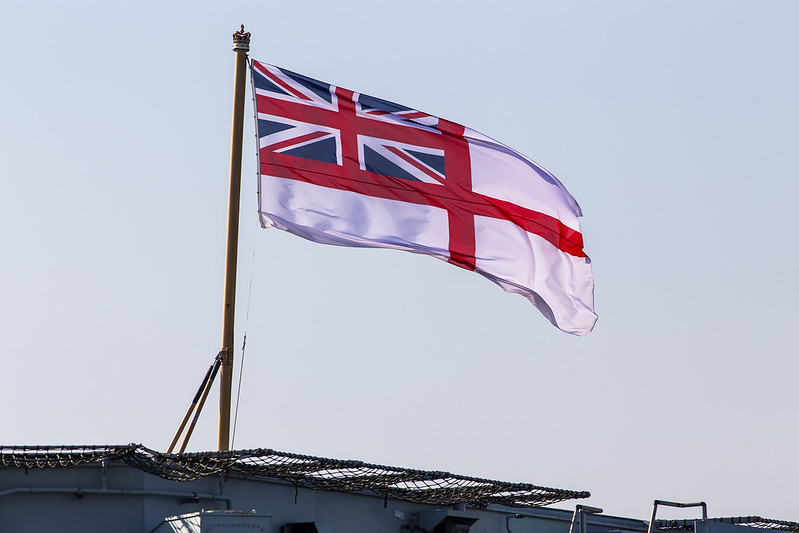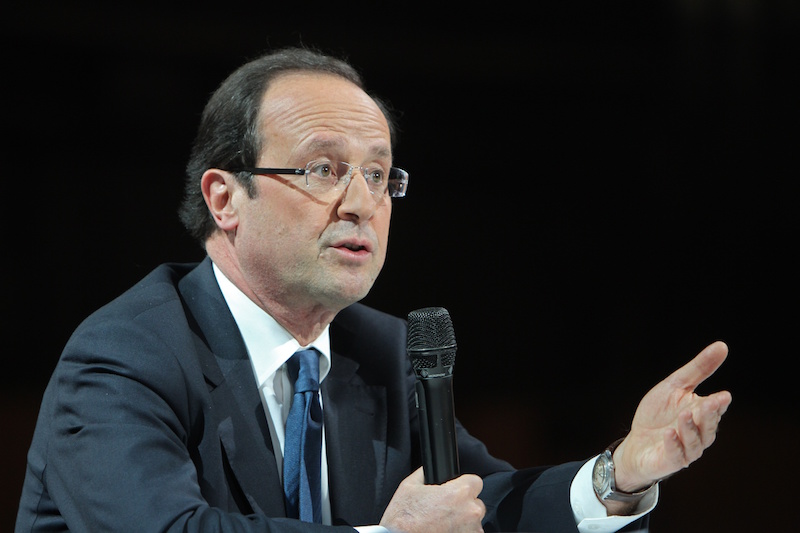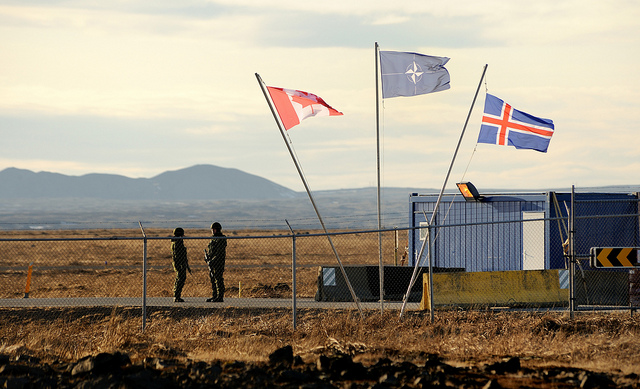Any state seeking to preserve its interests must identify and leverage a unique advantage it has over its neighbours and competitors. Athenian hegemony was assured by its cultural and naval power, the Union relied on its key industrial advantage to win the US Civil War, and Russia has always had “General Winter” – the cruel and ruthless weather – and its vast size to protect itself from invaders. The UK, due to geography, was always destined to be a sea-faring state. Its advantage then, as it is now, is rooted in the maritime domain. At 4:30 PM on October 21st, 1805, the last shots were fired at the Battle of Trafalgar. This British victory over a combined force of Spanish and French ships ended the threat of invasion of the British Isles, and ushered in the 100 years of what is now known as the Pax Britannica. During this time, the British navy was the world’s greatest instrument of war and peace.
A lot has changed over the last two hundred years. The Pax Britannica was quickly followed by the American Century, and the UK was displaced as the global hegemon. In the aftermath of its departure from the European Union, the UK is undergoing a transformation in the way it portrays itself on the world stage: world-facing, less European, and more interventionist. This is especially apparent in its newly proactive role in ensuring global security, as the British Armed Forces are increasingly deployed worldwide, including in the Arctic. This deployment, with the aim of ensuring Arctic security and projecting influence, was the first of its kind in over 20 years and is a sign of things to come. The British Armed Forces, most notably the Royal Navy, is set to be much more engaged globally in the coming years.
The Royal Navy’s flagship – the all new HMS Queen Elizabeth – is currently in the Eastern Mediterranean as part of her first operational deployment. Currently joining in the fight against Daesh, the state-of-the-art carrier will soon continue East to deploy for seven and a half months in the Indian Ocean and Pacific. This deployment is part of a general “tilt” towards the Indo-Pacific region. The shift away from “the cramped horizons of a regional foreign policy,” according to Boris Johnson, is part of the vision for a “Global Britain.”
On the way East, it has already conducted exercises with allied navies including France, which regularly uses its navy in the South China Sea. The deployment of the Queen Elizabeth is touted as the “most significant peacetime deployment in 25 years,” by Vice Admiral Sir Ben Key, which coincides with the unveiling of a 10-year road map to guide the relationship between India and the UK – with security and defence as a central focus. Defence planners in the UK have been very clear about the purpose of the deployment: China, and the importance of defending Western interests, as well as maritime commercial security in the Indo-Pacific. Notably, the 4.26 billion USD carrier will sail through the South China Sea, which is one of the most hotly contested regions in the world due to China’s increasingly aggressive posture in the Pacific. Commodore Steve Moorehouse, the carrier’s Commanding Officer, says “it shows we are a global navy and wanting to be back out there.”
The UK’s military posture is in the process of an overhaul guided by two key documents: Defence in a Competitive Age and Global Britain in a Competitive Age. From a defence perspective, the strategy laid out by Boris Johnson’s government will widen the presence of the UK’s Armed Forces throughout the world. The boost to defence spending – especially in tech-intensive areas – is welcomed by allies in NATO and around the world. Furthermore, the Defence paper indicates a more proactive and unpredictable fighting force, and a navy deployed to hot zones around the world.
Though one French diplomat, referring to Global Britain in a Competitive Age, quipped, “glad to see the UK back,” others are not so keen. Lord Ricketts, the UK’s former national security adviser, warns of the dangers of a tilt away from Europe. Lord Richards of Herstmonceux, former Chief of the Defence Staff, takes issue with spreading UK forces too thin. He points to the fact that, while the UK could make a real impact closer to home in the North Atlantic, “the risk is that we fritter it all away by going all around the globe and don’t achieve any real strategic influence anywhere.”
Michael Shurkin, of the Rand Corporation, points that from the US’s perspective, some would prefer the UK to remain focused on the North Atlantic, Mediterranean, and Gulf regions, leaving the US to manage and check an increasingly aggressive China. Wess Mitchell, foreign policy expert and former American diplomat, concurs. Mr. Mitchell says that the US needs its European NATO allies to handle issues of defence and security in Europe, so that “in the event of a major crisis, the United States can focus on China.”
The defence review also signalled cuts to the Army that worry NATO allies and defence analysts. The cut in size from approximately 82,000 to 72,000, its smallest size since 1714, is the most telling sign that the UK’s defence priorities are shifting. Funds continue to get pulled from the Army to fund military capabilities in space, and cyber initiatives. Britain will now only have 148 tanks – half as many tanks as France – which is enough to advance on just six kilometres of fighting front, according to Jack Watling of the Royal United Services Institute. American military officials, while impressed by the modernization initiatives in the UK, can no longer rely on the UK to deploy a full heavy division – roughly 100,000 personnel – which is the customary expectation.
Regardless of arguments for and against this new world-facing approach, its favourability will depend on two things: consistency and transparency to the UK’s allies. Euan Graham, a defence expert based in Singapore, says that the deployment of HMS Queen Elizabeth might not be accomplishing what the UK thinks. Mr. Graham adds that the carrier group is easily seen by pacific allies as a nostalgic gesture, one that hearkens back to when Britannia ‘ruled the waves,’ and that a once-in-a-generation deployment of this type is not of much use.
The other question looming over this shift away from a large Army is whether the UK’s land based fighting force is too small to be effective. In fact, the UK’s new vision is largely the opposite of its closest neighbour. France is more skeptical about the future of technology on the battlefield, and is preparing for a high intensity land based conflict. As a military, France is keeping 60% more soldiers than the UK as well as 50% more tanks, while placing the modernization of its armoured and motorized vehicles at the centre of its own overhaul. One thing in common between the two however, is the increase in spending on defence on both sides of the Channel, as the UK and her erstwhile enemy, France, now allied for over 100 years, prepare for the conflicts to come.
Photo: HMS Queen Elizabeth (2021), by Steven Vacher via Flickr. Licensed under CC BY-NC-ND 2.0.
Disclaimer: Any views or opinions expressed in articles are solely those of the authors and do not necessarily represent the views of the NATO Association of Canada.




